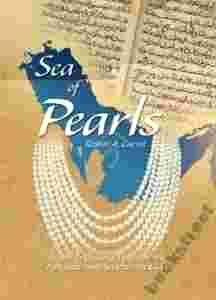|
Since Antiquity the natural pearls of the Gulf have
been famed as the finest, most lustrous and most
plentiful that the world can offer. From the beginnings
of trade until the 1930s, these pearls were a major
product of the Gulf's coastal peoples. Latterly, from
the 17th to the early 20th centuries, rising
international demand turned pearling into their economic
mainstay. By this time pearls were fished in their
millions, and pearling became the pillar of the regional
economy, dominating the lives, health and expectations
of entire shaikhdoms. The influx of people and wealth to
the coast permanently transformed the Gulf, providing
the manpower and capital to germinate and nurture the
city-states - notably Kuwait, Bahrain, Qatar, Abu Dhabi,
Dubai, Sharjah and Ras al-Khaimah - which endure there
today. Despite its formative role, there has until now
been no book taking the entire history of pearling as
its subject. Dr Carter's ground-breaking work traces its
evolution on both the Arabian and the Persian sides of
the Gulf, and explores the role it played in shaping the
political, social and urban configuration that we see in
the region today. It shows the extent to which the Gulf
economy became dependent on a single commodity, and how,
in that respect, pearling resembled the oil industry
that would replace it. Lavishly illustrated, this book
covers in unprecedented detail the history, development,
conduct, florescence and catastrophic collapse of the
industry in the early 20th century. It will fascinate
not only those wishing to understand the growth and
conduct of the pearl fishery, but also those interested
in the history of the region and the origins of the Gulf
states, and in the colourful story of the global taste
for one of mankind's most highly prized precious
stones. |
|

